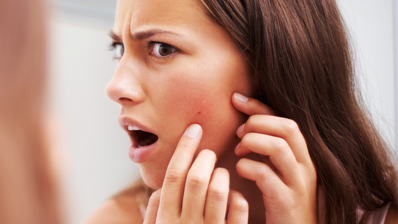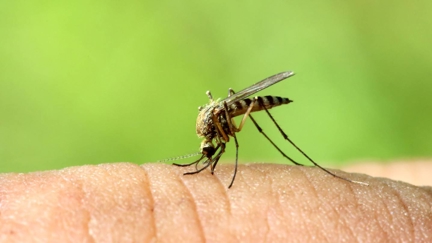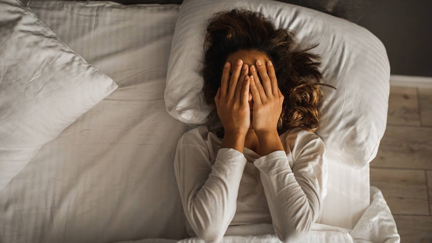These are the five types of pimples you should NEVER pop according to experts

We all know the feeling of waking up on the day of an important event and spotting a pimple in an unfortunate location.
The temptation to squeeze and try and pop the blemish can often be too much, and while it might seem like a good idea at the time, Sydney dermatologist Dr Natasha Cook warns that you could be leaving yourself permanently scarred.
Speaking to lifestyle website Body & Soul, Cook revealed the five pimple types you need to avoid touching in order to not cause serious damage to your skin.
1. Milia
Milia, or "milk spots", appear on your face as hard, stubborn bumps that can often be hard to get rid of.
"They don't have an opening on the skin, as they are encased like a cyst," she said.
Dr Cook, however, said popping these with your hands damages your skin. The best way to get rid of them is to have a dermatologist to break the skin with a fine, sterile needle and squeeze out the cyst.
2. Cold sores
Cold sores occur on the lips and the skin around the mouth, nose and chin - all areas which can be hard to cover up.
Dr Cook warns that picking these small blisters can cause the infection to spread to other areas of your face.
However antiviral medications and lotions can treat the symptoms and help avoid future flare-ups.
3. Ingrown hairs
Dr Cook insists picking these pesky hairs out is not the best method and can cause long-term problems.
"It simply creates trauma without addressing or releasing the ingrown, leading to inflammation and scarring," she explained.
Instead, Cook suggests seeing a dermatologist who will use a sterile needle to release the ingrown hair.
4. Red lumps
Red lumps and bumps, otherwise known as "sandpaper skin", usually clear up as your age. But what are the options if you don't "grow out of it?"
There are certain treatments that can help you alleviate these pesky lumps, such as cell exfoliators, or dissolving ingredients like salicylic acid.
5. Cystic acne
Cystic acne is most common in young adults and teenagers. However, Dr Cook said people are better leaving this type of acne alone in order to avoid trauma scarring.
Cook added that they are far too deep to reach and picking them only damages the skin.
This article was originally published on NZ Herald and is reproduced here with permission.
Take your Radio, Podcasts and Music with you




